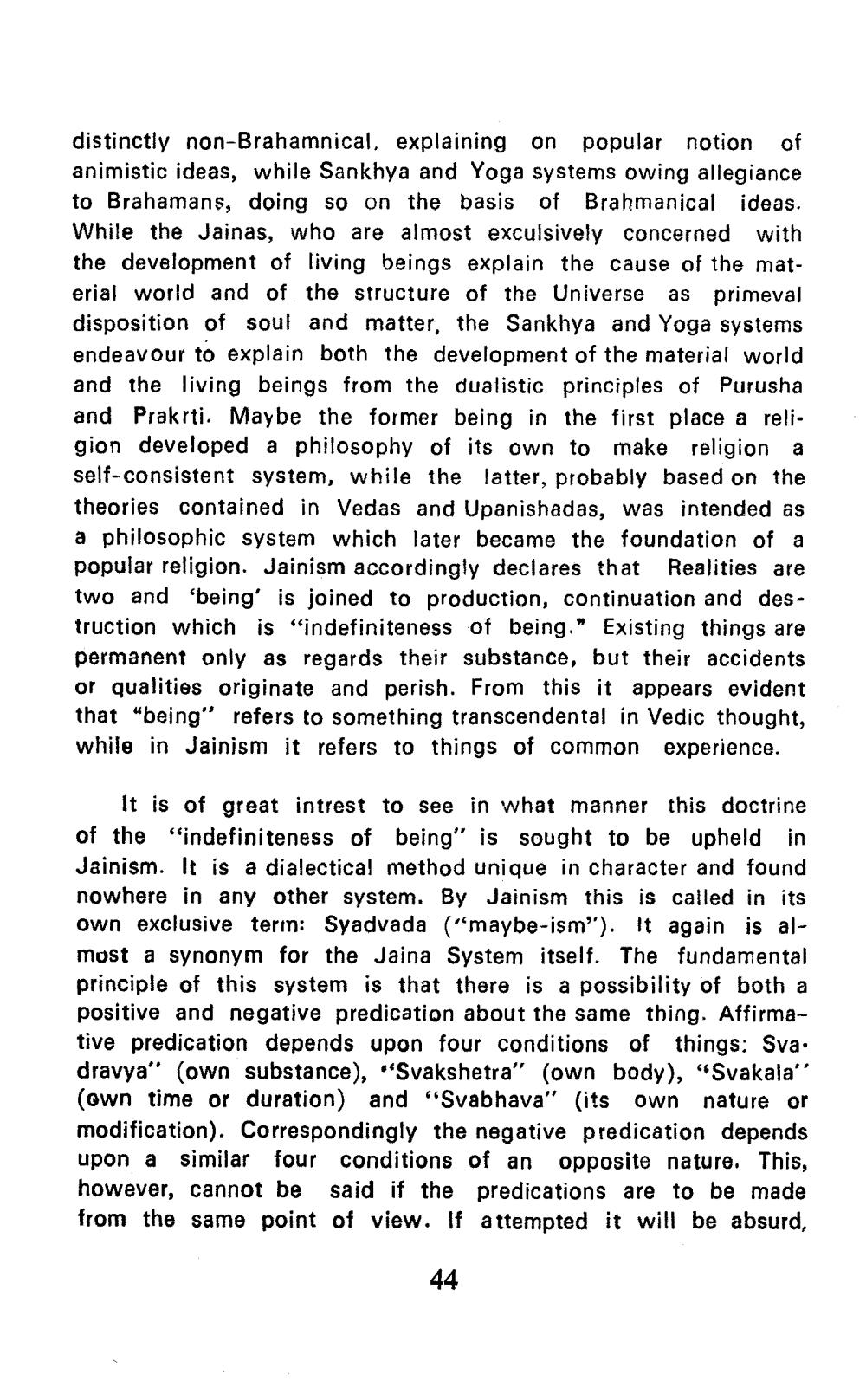________________
distinctly non-Brahamnical, explaining on popular notion of animistic ideas, while Sankhya and Yoga systems owing allegiance to Brahamans, doing so on the basis of Brahmanical ideas. While the Jainas, who are almost exculsively concerned with the development of living beings explain the cause of the material world and of the structure of the Universe as primeval disposition of soul and matter, the Sankhya and Yoga systems endeavour to explain both the development of the material world and the living beings from the dualistic principles of Purusha and Prakrti. Maybe the former being in the first place a religion developed a philosophy of its own to make religion a self-consistent system, while the latter, probably based on the theories contained in Vedas and Upanishadas, was intended as a philosophic system which later became the foundation of a popular religion. Jainism accordingly declares that Realities are two and being' is joined to production, continuation and destruction which is “indefiniteness of being." Existing things are permanent only as regards their substance, but their accidents or qualities originate and perish. From this it appears evident that "being"' refers to something transcendental in Vedic thought, while in Jainism it refers to things of common experience.
It is of great intrest to see in what manner this doctrine of the "indefiniteness of being" is sought to be upheld in Jainism. It is a dialectical method unique in character and found nowhere in any other system. By Jainism this is called in its own exclusive term: Syadvada ("maybe-ism"). It again is almost a synonym for the Jaina System itself. The fundamental principle of this system is that there is a possibility of both a positive and negative predication about the same thing. Affirmative predication depends upon four conditions of things: Sva. dravya" (own substance), “Svakshetra" (own body), "Svakala'' (own time or duration) and "Svabhava" (its own nature or modification). Correspondingly the negative predication depends upon a similar four conditions of an opposite nature. This, however, cannot be said if the predications are to be made from the same point of view. If attempted it will be absurd,
44




